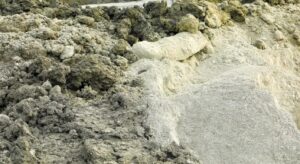 Researchers at EPFL and SUPSI, alongside startup Medusoil, have demonstrated that the soil bacterium Bacillus megaterium can convert over 94 % of pressurized CO₂ into calcium carbonate (limestone) via a clean, ammonia-free process using carbonic anhydrase—rather than the traditional, ammonia-producing urease pathway—making the conversion efficient and environmentally friendly, with the resulting calcite matching natural geological forms. In lab conditions with CO₂ at ~470 atm, the bacteria rapidly precipitated limestone that can bind sand into solid blocks, suggesting industrial applications in cement or steel plants to both sequester carbon and produce durable bio-calcite-enhanced concrete; pilot results show promising strength and freeze-thaw resistance, and economic models estimate capture costs could fall below $50/ton using renewable energy and sustainable calcium sources. Researchers at EPFL and SUPSI, alongside startup Medusoil, have demonstrated that the soil bacterium Bacillus megaterium can convert over 94 % of pressurized CO₂ into calcium carbonate (limestone) via a clean, ammonia-free process using carbonic anhydrase—rather than the traditional, ammonia-producing urease pathway—making the conversion efficient and environmentally friendly, with the resulting calcite matching natural geological forms. In lab conditions with CO₂ at ~470 atm, the bacteria rapidly precipitated limestone that can bind sand into solid blocks, suggesting industrial applications in cement or steel plants to both sequester carbon and produce durable bio-calcite-enhanced concrete; pilot results show promising strength and freeze-thaw resistance, and economic models estimate capture costs could fall below $50/ton using renewable energy and sustainable calcium sources.
Source: Earth.Com |